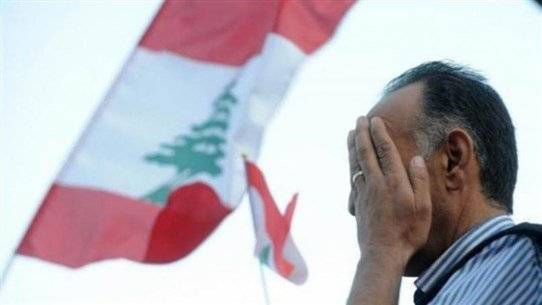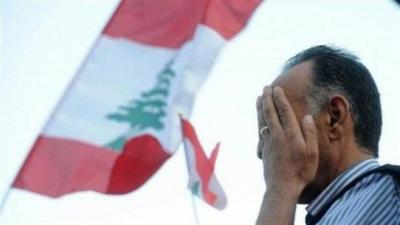Lebanon has entered a highly sensitive monetary phase as its hard currency reserves have dropped below the threshold of 10 billion dollars, amidst a continuous drain over the years of financial and monetary collapse that is about to complete its third year soon, driven by a notable political failure of the ruling system that avoids, at times by evasion and often by procrastination, the necessary response to the executive and legislative needs for desired structural reforms.
Statistical data clearly reflect a correlation with the description of "deliberate recession," which the World Bank early attributed to the ruling system. It shows in numbers the waste of over 22 billion dollars from the total reserves available at the central bank on the eve of the massive public protests that erupted on October 17, 2019, awaiting an uncertain delayed aid not exceeding 3 billion dollars distributed over 4 years via a promised funding program with the International Monetary Fund.
Moreover, the latest data from the balance sheet of the Central Bank of Lebanon reveals a decrease in its foreign assets of about 396.14 million dollars during the second half of August 2022, bringing the total down to 14.75 billion dollars, including a Eurobond portfolio of government debts amounting to 5.03 billion dollars. This data carries within it a double warning of surpassing the psychological red line as liquid reserves have declined to 9.72 billion dollars on one hand, while the monetary authority's ability to manage liquidity in the foreign exchange markets has diminished.
The worst part of the data analysis, according to banking and financial sources, is the gradual erosion pattern being retained without registering the expected improvement due to cash inflows during the summer tourism season in the past two months, which witnessed an exceptional surge in visitors reaching about 1.3 million, mostly Lebanese workers abroad and expatriates, who spent over 3.5 billion dollars that practically helped ease the monetary "tension" and meet part of the demand for liquidity in dollars.
In an annual data comparison, it becomes evident that the value of the Central Bank's foreign assets has shrunk by 24.65 percent, equivalent to 4.83 billion dollars, compared to the level it was at the end of August 2021. This negative outcome achieved in one year nearly amounts to about 6.4 times the annual share Lebanon hopes to receive as a concessional loan from the IMF.
The disastrous comparison by all standards lies in what the cumulative waste reveals. While the ruling system is preoccupied with and keeps the people occupied with a promise of borrowing 3 billion dollars over 48 months from the IMF, over 20 billion dollars have been spent over 3 years, mainly on ineffective support for goods and fuels, curbing the rapid depreciation of the national currency, financing electricity deficits, and covering shortfalls in the general budget and state expenditures, awaiting the "Godot" of the fund (a play by Irish writer Samuel Beckett, about two men waiting for someone named "Godot" who never arrives).
In this context, the international credit rating agency Fitch indicated that the time to begin implementing the agreed-upon program with preliminary conditionalities from the fund's mission is uncertain due to the political scene in Lebanon, which could hinder the implementation of the required steps to obtain the approval of the fund’s board. It noted, in its latest report on Lebanon, the existence of a significant number of steps demanded by the IMF, such as cabinet approval of a strategy to restructure banks, parliamentary approval of urgent banking legislation, a new law on banking secrecy according to the fund's observations after it was rejected by the president, and the 2022 budget. The fund also requires the unification of exchange rates, accompanied by the application of "capital control," forensic auditing of the accounts of the Central Bank of Lebanon, and commencing the evaluation of operating banks.
According to the agency, one of the main problems is the net negative balance of foreign currency reserves at the Central Bank of Lebanon and its implications for banks and depositors. The banks’ foreign currency obligations reached 104 billion dollars by mid-year, while their placements in foreign currency at the Central Bank amounted to 79 billion dollars. However, they are not available to them as the total foreign currency reserves of the central bank had reached 11 billion dollars by mid-year. This is without counting the gold reserves estimated to be worth about 17 billion dollars, which require legal legislation in the parliament to be accessed in any form.




